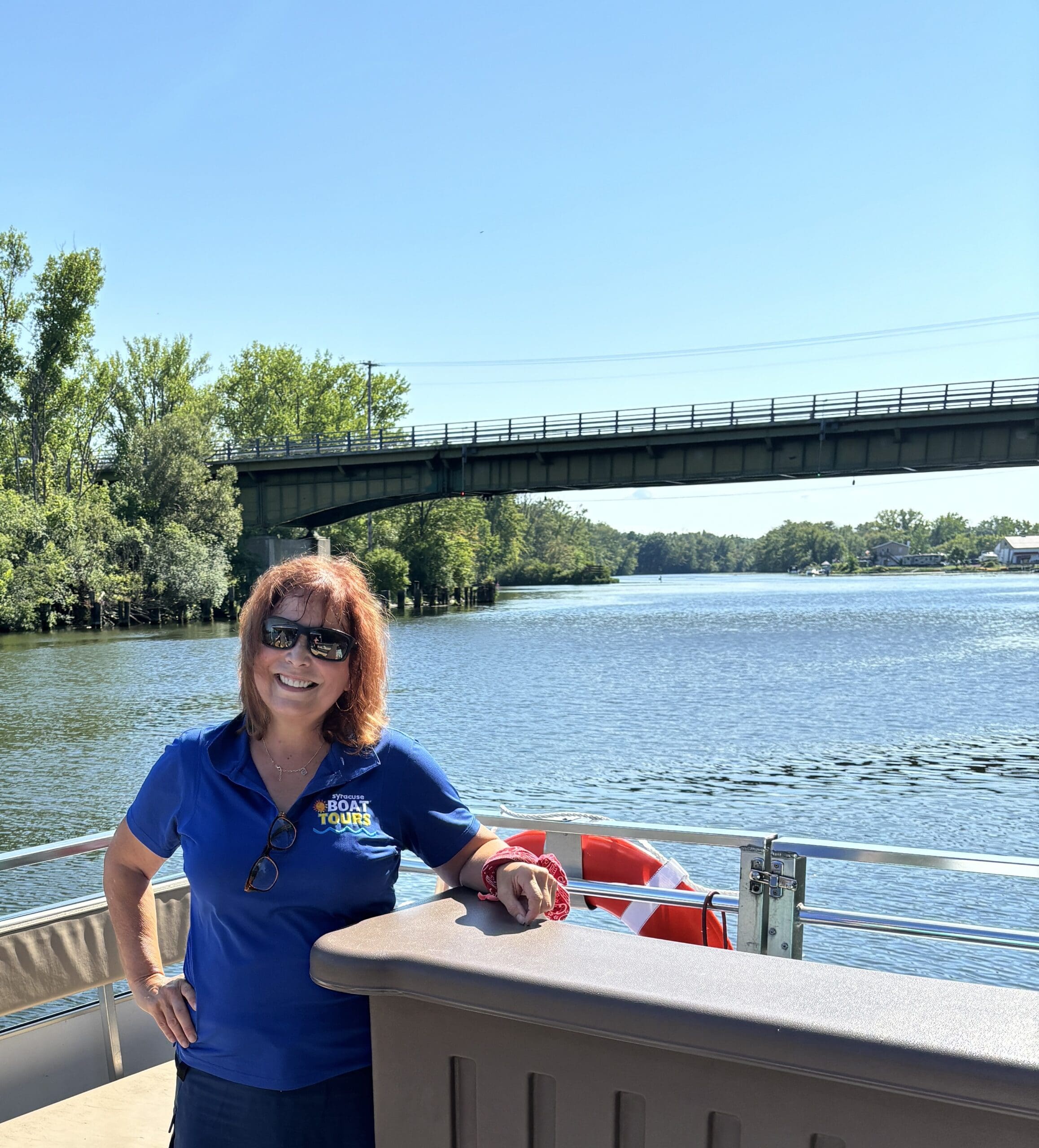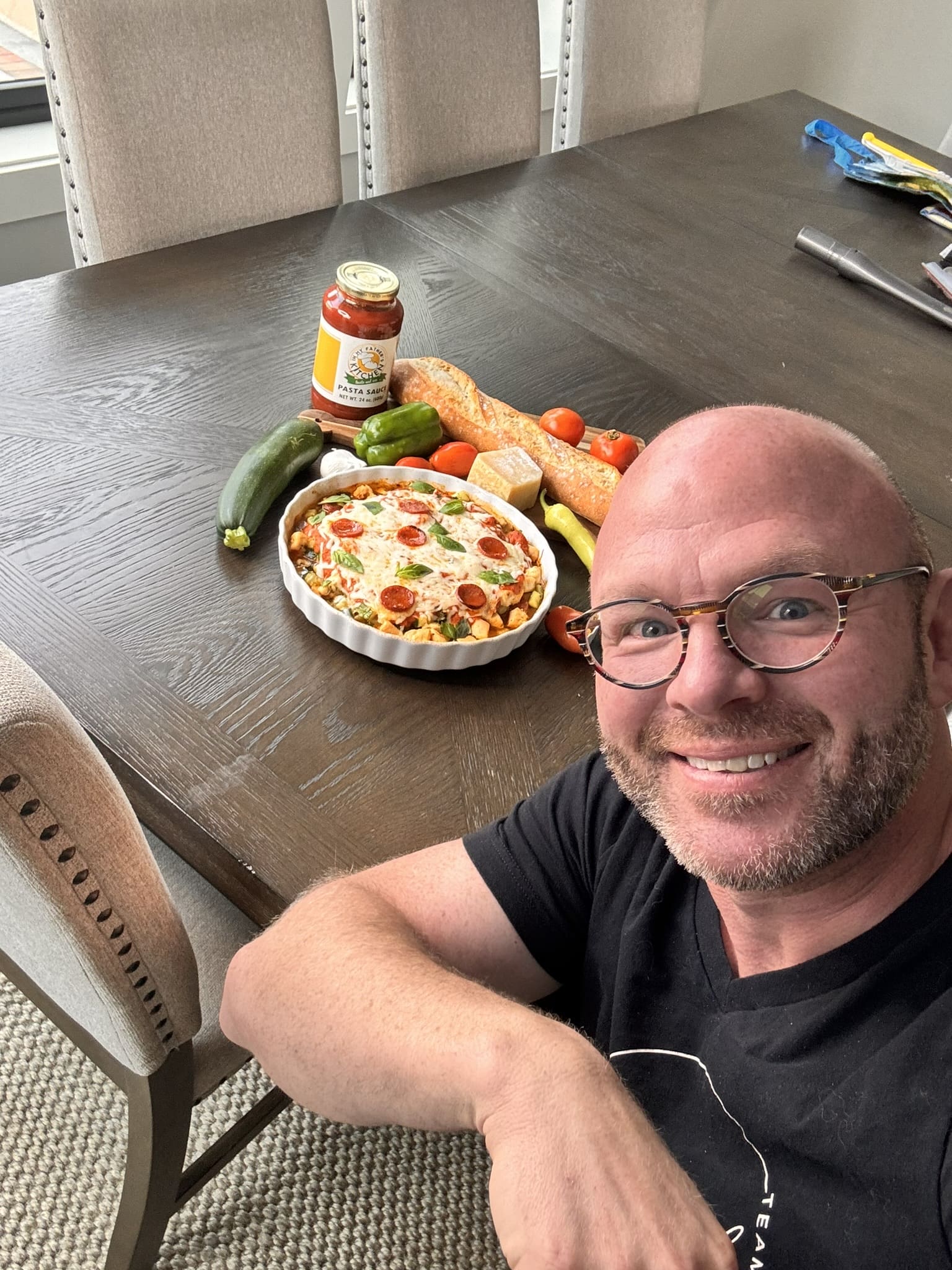Teaching Education Appreciation
By Lorna Oppedisano | Photography by Alexis Emm
“Everyone has a story and everybody has gifts. That’s how I try to teach,” Syracuse City School District teacher Jenniffer Benedetto said. “I educate and inspire with that mindset, with love and determination.”
Jenniffer didn’t always dream of being a teacher. In fact, growing up, she didn’t particularly love school. Education wasn’t part of the backbone of life, she explained.
That began to change when she attended Onondaga Community College, where she earned two degrees. She’s always admired her English teachers. At OCC, Jenniffer’s instructors told her she was a talented writer. She began to read more and eventually fell in love with education.
She earned a master’s degree at the State University of New York College at Cortland. While student teaching in the Syracuse City School District shortly before graduating, she was offered a permanent position with the district.
Jenniffer spent the next 13 years teaching high school English at Nottingham High School, where autonomy led to success in creative approaches to teaching, she explained.
“That’s really been a theme throughout my career,” she said. “I’ve been able to do some things I wanted to do and have the freedom to do it.”
About 12 years ago, the Nottingham administration asked Jenniffer if she would be interested in creating a community-wide dialogue class, since she had such a strong connection with the students.
Along with a fellow teacher, Jenniffer worked to create Cultural Voices, now a New York State Recognized Program of Excellence. The class — typically a semester in length — connects high school students with doctoral and masters students, and centers around the skill of dialogue communication.
“And I tell them, ‘That will open doors for you in life, not just in school. Maybe in your personal life, on the job [or] in college,’” she said.
About three years ago, Jenniffer was given the opportunity to help pilot a new program at the district’s Johnson Center.
“Whatever was here before was not working,” she explained. “Kids were not earning credits. Kids were not graduating.”
So, Jenniffer and a few other teachers created the alternative high school program EPIC, Engaging People in Innovation and Creativity. They approached the project with a question in mind: how can we help and connect with these students for whom the traditional, larger high school setting hasn’t worked?
Now, three years later, after hard work and new methods — including more field trips, more community interaction and stronger relationships with students and their families — graduation rates have increased.
“The relationship piece is key, especially in alternative ed,” Jenniffer said.
Class sizes are small, with no more than 15 students per class. Jenniffer’s school days start by greeting each student with lots of energy. For children who don’t have a lot of experience being a student, just walking into a space can cause anxiety, she explained.
Being someone who didn’t always feel comfortable in school, Jenniffer hopes sharing her own experiences can help her students.
“Sometimes I felt like an outsider looking into the world of education,” she remembered. “I didn’t realize my own intellect until I went to college. And I thought, ‘There’s got to be more young people who feel like me.’”
She uses small group learning stations to cover different topics each day, and has also adapted the Cultural Voices program to fit the alternative education setting.
Starting in fall 2019, Jenniffer plans to be part of Peer Assistance and Review, a district program aimed to provide support, guidance and evaluation for first-year teachers. She hopes her experiences as an educator will help young teachers.
“I’d like to do something to impact the school system and teaching even more,” she said.
Jenniffer hopes to inspire people to stay in Syracuse. There’s a great deal of potential in the area, she explained. She’d like to see young people stay and become teachers and leaders.
Through her 16 years of teaching, Jenniffer’s made lasting connections with her students and their families. She mentors them long after the school year is over. Whether it’s being part of a book club, looking over a resume or job application, or bringing them to a march or rally, she’s happy to help them find their voice and have it heard.
“They have a voice. They just need a platform,” Jenniffer said. “And I’ll be the conduit for that.” SWM
For more information about the Syracuse City School District, visit syracusecityschools.com.





